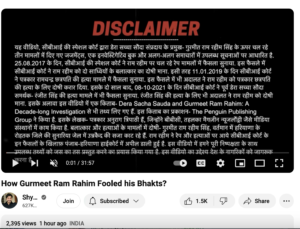Dev Desai, well known social activist from Gujarat, was in for a shock this afternoon when WhatsApp sent him a message that he was blocked from using their service!
Totally clueless as to why the popular messaging service took this extreme step, Desai took to Twitter to let people know he was no longer able to communicate through WhatsApp. Desai is the coordinator of Anhad, Gujarat, the organisation that works on communal harmony through social and cultural activities.
On Twitter, the Anhad founder Shabnam Hashmi, protested the blocking of Desai’s account and demanded its restoration.
His last broadcast message was to appeal to his friends and followers to endorse an online campaign against the new and repressive Uttar Pradesh law against so-called ‘love jihad’.
Whatsapp, the messaging site, which boasts of end-to-end encryption and has spoken multiple times of its intention to protect its users from state censorship, is highly popular in India. It has around 400 million users and has been a controversial site for the enabling of hate speech and inflammatory messages and has faced constant threat of government regulation.
It had recently enabled a dissappearing messages function and this November, finally managed to obtain all permissions from the Indian government to start using its platform for payments in partnership with the National Payments Corporation of India (NPCI). Its blog announced that, starting November 6, 2020, it launched its payments sevice with the use of the Unified Payment Interface (UPI) which enables transactions with over 160 supported banks.
Desai plans to register a formal complaint with Whatsapp but like most users of the messaging site who suddenly lose their contacts and communication networks, he is scrambling around trying to find the appropriate forum. The Whatsapp site merely says that users who find messages that their accounts are banned have violated its terms of use.

Facebook, which is Whatsapp’s parent company, is no stranger to censorship and regulation. It has come under flak for the manner in which it regulated content, blocked accounts which are critical, even as it has retained scores of hate-speech accounts peddling hate speech, encouraged sexual harassment by allowing harassers full rein and now, under a cloud for its interference in electoral processes.
Clearly, the regulation by social media networks is only going to increase and users, especially those who manage to develop a wider reach and influence, will face more and more censorship.


